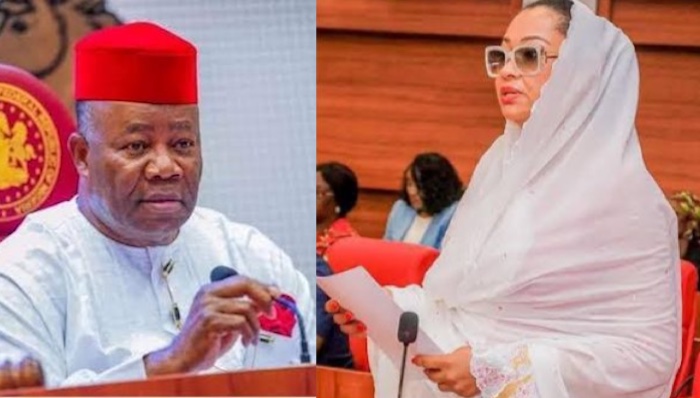Suspended Senator representing Kogi Central, Natasha Akpoti-Uduaghan, has strongly denied involvement in a recently circulated audio recording that allegedly features her voice discussing sensitive matters involving top government officials.
In a statement issued on Tuesday, Akpoti-Uduaghan dismissed the viral clip as a manufactured and malicious attempt to tarnish her image. She asserted that the voice in the recording was not hers, but a product of voice cloning technology used to fabricate the narrative.
“My attention has been drawn to an audio making rounds on social media claiming to be a conversation I had with a journalist. I want to state categorically that the voice in that recording is not mine. It is a cloned audio designed to mislead the public and damage my reputation,” she said.
According to the embattled lawmaker, this is not the first time digital tools have been weaponized to falsely implicate her. She revealed that similar incidents had occurred in the past where her identity was digitally manipulated to simulate conversations with prominent Nigerians, including Hon. Emmanuel Ekon, Dr. Tunji Alausa, Chief Allen Onyema, and Uju Kennedy-Ohanenye.
“These attacks follow a disturbing pattern. My name has repeatedly been dragged into fabricated recordings meant to discredit me and sow confusion,” she added.
Akpoti-Uduaghan described the development as part of a larger plot to intimidate and silence her, especially given her outspokenness on issues affecting the National Assembly and governance. She called on security agencies to investigate the origin of the recording and bring those behind the scheme to justice.
Meanwhile, the senator is also at the center of an ongoing controversy involving Senate President Godswill Akpabio. Natasha earlier accused the Senate leadership of sexual harassment and claimed her suspension was orchestrated to suppress the allegation. She insisted that the claim that she disrupted Senate proceedings was a cover-up designed to shift attention from her accusations.
The incident has sparked fresh debate about the use of AI-driven technology in political misinformation, especially as the country approaches the 2027 general elections. Civil society groups and legal experts have called for stronger digital privacy protections and regulatory frameworks to curb the spread of deepfake content in Nigeria’s political landscape.
TheNigerian will continue to monitor the story and provide updates as more facts emerge.

